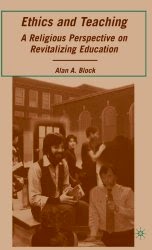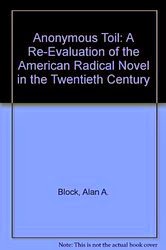Winter Solstice
Here’s a metaphor: to accompany the white wine, IPA, or single malt scotch at the 4:00pm cocktail hour I usually cut up a plate of vegetables to accompany our beverages, to have for what I like to refer to as our cocktail hour. The platter consists usually: celery, carrots, cucumbers, peppers of all colors, florets of broccoli and cauliflower, radishes and at times even a scallion or two. I like the bite of the latter. We usually accompany our crudités with a bowl of some variety of dip: salad dressings of a variety of flavors, French, Blue Cheese, Russian, Thousand Island, and America’s favorite, Ranch. We listen to music as we imbibe, converse and chomp: Folk Alley is our favorite choice and is one of the music streams to which I subscribe (which means I am a financially sustaining member), but sometimes a Baroque music station or an album of Adagios or Beethoven sonatas from Amazon Music pleases us for the calm they provide. I mean, we love the sound of the banjo but sometimes it becomes too driving and excited.
Now, metaphor is an implied analogy linking imaginatively and emotionally two seemingly disparate objects in which the qualities of the first are ascribed to the second. So: sometimes at cocktail hour I might set out a small bowl of potato chips. I keep almost permanently a large bag of chips in the pantry. Here it comes, the metaphor! When I open the bag of chips at the top they are full sized and mostly unbroken. However, as we munch our way down the bag, I note that the chips are broken and reduced in size. Eventually and towards the bottom of the bag, the chips are so small that they are more bits than chips and each is barely capable of holding onto dip (see above for the variety we set out). And by the time we arrive at the bag’s bottom the chips are reduced to mere crumbs. Indeed, the bits have by become so crushed that I can simply lift the chip bag and pour the crumbs into my hand and pop those crumbs into my mouth.
How can this metaphor be defined and explained? If a metaphor is a literary device where one thing directly stands for another, then my experience with the chips seemed to me similar to my understanding of the structures of this society: on the top of the potato chip bag rests the rich and their weight crushes those that are underneath them. The rich on top and the poor on the bottom suffering under the size and weight of those above them. In the middle are chips like myself: crushed by the rich and crushing those below. Oh, I read the news today, oh boy!
Here is another metaphor: the Winter Solstice—the shortest day of the year and the longest night. The event is an astronomical fact: the solstice is the moment when the earth’s tilt is farthest from the sun. This year, 2023, the solstice occurs at 9:27pm CST. Interestingly, that moment astronomically lasts but an instant though the entire day itself is celebrated as the winter solstice and the first day of winter! The winter solstice marks the death and rebirth of the sun: from here on the days will get longer and the nights shorter until the summer solstice when the sun in an instant will begin to die again as the dark grows stronger. What makes the winter solstice a metaphor for me links to the moan of Daisy Fay Buchanan in F. Scott Fitzgerald’s novel The Great Gatsby. Daisy whines, “I always wait for the longest day of the year and then miss it.” The sentiment is a clue to her character and even to the novel as a whole. Gatsby, narrator Nick Carraway, Daisy, Jordan, Myrtle and even Tom are troubled by what they don’t have, what they have missed and what still they miss. Even the final lines, “So we beat on, boats against the current, borne back ceaselessly into the past” speak of mistaken hope and inevitable loss. Gatsby is a very sad novel. But as for myself, I don’t wait for the longest night of the year; I don’t even recognize most of it because I sleep through its moment, and except for those episodes when I have to make a wee, I sleep through the longest night. I do not see the darkness. I consider Fitzgerald again. He writes, “[I]n a real dark night of the soul it is always three o’clock in the morning, day after day. At that hour the tendency is to refuse to face things as long as possible by retirement into an infantile dream . . .” That long night of the Winter Solstice makes for much possibility for the dark night of the soul. Last night’s dreams, for example, in which everything I valued became lost. But in the next instant the sun was reborn and everything I valued began to return. The sun was resurrected in the instant following the solstice and that becomes a moment of hope. I am comforted. I do not suffer the dark night of the soul. I am aware that it will still be outside very cold and dark, though less so each day. I have hope.
For Daisy the Summer solstice stands for loss. For me the winter solstice represents a time of gain.













